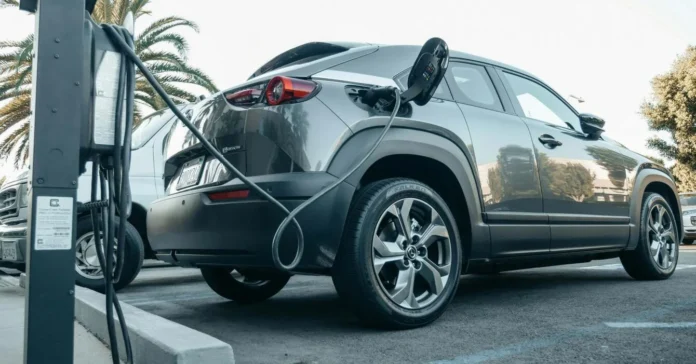Saudi Arabia’s EV revolution is gaining speed as the oil-rich nation works to diversify its economy and cut carbon emissions. While electric vehicles currently make up just 1% of car sales, major investments in infrastructure and local manufacturing aim to transform the market.
One of the biggest hurdles for EV adoption has been a lack of charging stations. Currently, Saudi Arabia has only about 285 public chargers, mostly slow ones. However, the Electric Vehicle Infrastructure Company (EVIQ) plans to install 5,000 fast chargers across 1,000 locations by 2030.
“People won’t buy EVs unless they see reliable charging options,” said EVIQ CEO Mohammad Gazzaz. The company recently opened its first highway charging station and aims to cover 70-80% of travel routes by 2026.
High prices have also slowed EV adoption. In 2024, over 60% of available EV models cost more than $65,000, while most gas-powered cars were cheaper. However, Chinese automaker BYD has entered the market with more affordable options, such as the Atto 3 starting at $27,000.
Extreme heat poses another challenge, reducing battery efficiency and range. Additionally, Saudi Arabia’s vast distances—like the 950 km (600-mile) gap between Riyadh and Jeddah—exceed the range of many EVs.
Rather than just importing EVs, Saudi Arabia is building its own industry. The Public Investment Fund (PIF) owns a majority stake in Lucid Motors, which opened the country’s first car factory in 2023. Another PIF joint venture, CEER, plans to launch a Saudi-made EV by 2026.
“Saudi Arabia’s EV revolution isn’t just about adoption—it’s about creating a full industrial ecosystem,” said Heiko Seitz of PwC Middle East. Hyundai is also constructing a manufacturing plant in the kingdom.
To boost demand, experts recommend subsidies, VAT exemptions, and free home charger installations. The government has already introduced some incentives. Surveys show that over 40% of Saudis may buy an EV within three years.
With charging networks expanding and prices dropping, Saudi Arabia’s EV revolution could soon shift into high gear. This would help the kingdom reduce its reliance on oil while embracing sustainable transport.


